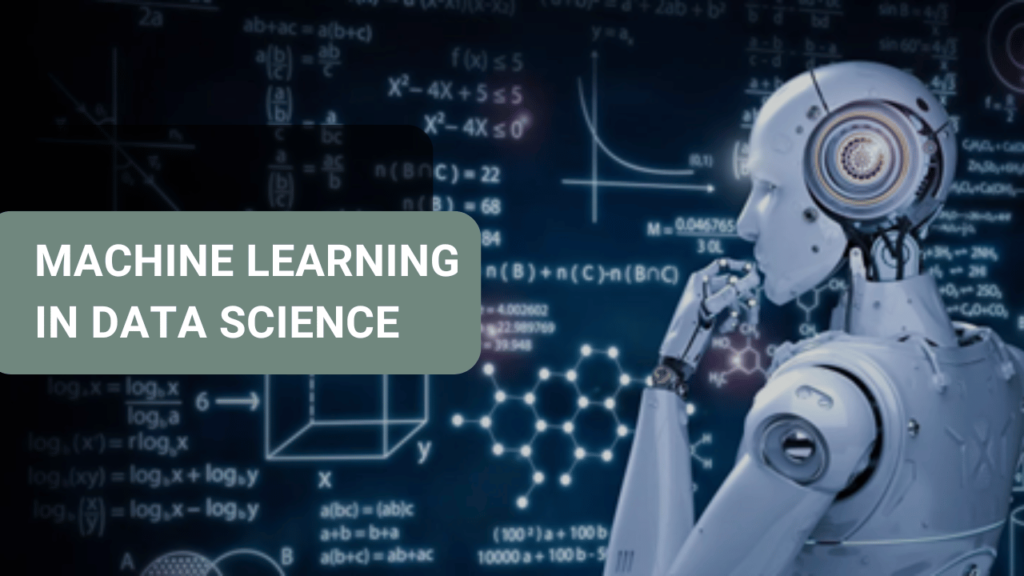In the rapidly evolving field of data science, machine learning (ML) has emerged as a game-changing tool that empowers data professionals to analyze data, make accurate predictions, and automate decision-making processes. ML complements the analytical nature of data science by enabling deeper insights and fostering innovation across industries.
This article explores the dynamic relationship between machine learning and data science, highlighting their applications and benefits while discussing the relevance of certifications for career advancement.
Understanding Machine Learning in Data Science
Machine learning is a subset of artificial intelligence (AI) that focuses on developing algorithms capable of learning from and making data-based decisions.
In data science, it is employed to:
- Analyze large datasets for hidden patterns and correlations.
- Develop predictive models to forecast future outcomes.
- Automate repetitive and time-intensive data processes.
ML is integral to turning raw data into actionable intelligence, making it an indispensable tool for data scientists.
Key Applications of Machine Learning in Data Science

1. Predictive Analytics
Machine learning enables data scientists to create models that forecast trends and outcomes based on historical data.
- Examples: Predicting customer churn, sales revenue, or weather patterns.
- Techniques: Linear regression, time series analysis, and neural networks.
2. Classification and Categorization
ML algorithms classify data into distinct categories, streamlining analysis and interpretation.
- Examples: Spam email detection, and disease classification through medical imaging.
- Techniques: Decision trees, support vector machines, and random forests.
3. Anomaly Detection
Identifying unusual patterns within datasets is crucial for detecting fraud or diagnosing system failures.
- Examples: Credit card fraud detection, and
- network security monitoring.
- Techniques: K-means clustering, isolation forests.
4. Natural Language Processing (NLP)
NLP allows data scientists to extract insights from unstructured text data, enabling applications like sentiment analysis and text summarization.
- Examples: Chatbots, virtual assistants, and automated transcription services.
5. Recommender Systems
Recommender systems use ML to analyze user behavior and suggest personalized content.
- Examples: Product recommendations on Amazon, and playlist suggestions on Spotify.
- Techniques: Collaborative and content-based filtering.
Certifications for Career Advancement
As the demand for data science professionals grows, certifications play a crucial role in validating expertise. Programs like 10 Recommended Certifications in Data Science provide a pathway for individuals to master machine learning and other essential skills. These certifications enable professionals to stay competitive and enhance their employability in a rapidly evolving industry.
Industries Leveraging Machine Learning and Data Science
1. Healthcare
ML aids in diagnosing diseases, predicting patient outcomes, and advancing drug discovery.
- Example: IBM Watson Health’s use of ML to analyze medical data.
2. Finance
Financial institutions use ML for fraud detection, credit scoring, and algorithmic trading.
- Example: Banks employing predictive models for risk assessment.
3. Retail and E-commerce
Retailers utilize ML for customer behavior analysis, inventory management, and personalized marketing.
- Example: Amazon’s use of recommender systems for product suggestions.
4. Technology
Tech companies apply ML in virtual assistants, search engine optimization, and AI-driven tools.
- Example: Google’s machine learning algorithms powering search results and language translation.
Conclusion
Machine learning transforms data science by offering advanced tools and techniques for analyzing data, making predictions, and automating processes. Its applications span diverse industries, including healthcare, finance, retail, and technology, showcasing its versatility and impact. For data professionals, acquiring certifications and staying updated with the latest advancements in machine learning is essential to thrive in this dynamic field. By integrating ML with data science, we continue to push the boundaries of innovation and unlock the true potential of data-driven decision-making.



